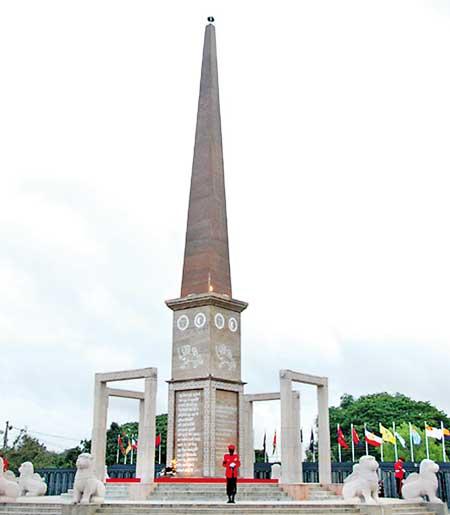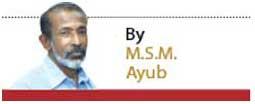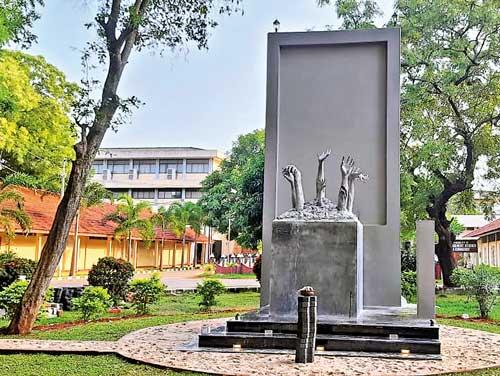Debate on genocide without a credible death toll
Posted on May 30th, 2023
Courtesy The Daily Mirror
These numbers are not determined by authentic evidence or facts but by political outlooks and agendas. And all those who refer to these numbers seem to have forgotten that they are talking about human lives
 |
| Ranaviru Day Commemoration at Parliament premises |
| Sri Lankan Government officially commemorates the members of the Armed Forces who died in the war on May 19 |
| Despite the merit or demerit of the decision, it seems to be a move by President Ranil Wickremesinghe, who might have been instrumental to it and who is planning to contest the next Presidential election, to win over the Tamils |
 There would hardly be any point in Foreign Affairs Minister Ali Sabry summoning Canadian High Commissioner Eric Walsh on May 19 to express Sri Lanka’s objection against Canadian Prime Minister Justin Trudeau’s statement on May 18 on the Tamil Genocide Day” declared by the Tamil diaspora in Canada. The Canadian PM was just addressing a section of his constituency.
There would hardly be any point in Foreign Affairs Minister Ali Sabry summoning Canadian High Commissioner Eric Walsh on May 19 to express Sri Lanka’s objection against Canadian Prime Minister Justin Trudeau’s statement on May 18 on the Tamil Genocide Day” declared by the Tamil diaspora in Canada. The Canadian PM was just addressing a section of his constituency.
Last year the Canadian House of Commons unanimously adopted a motion recognising May 18 as ‘Tamil Genocide Remembrance Day’. The Canadian Parliament is the only parliament in the world to recognise the claim of Tamil genocide in Sri Lanka made by Tamil groups.
Despite some Tamil groups in Sri Lanka are also of the view that the destruction of life and property took place in the north in May 2009, ending the war between Sri Lanka’s State Armed forces and the Liberation Tigers of Tamil Eelam (LTTE) is tantamount to genocide, they commemorate this day as Mullivaikkal Day.
However, former Northern Province Chief Minister C.V.Wigneswaran got a resolution passed in his council on February 10, 2015, declaring that Tamils in Sri Lanka have been subject to genocide and calling the UN to investigate it.
Sri Lankan Government officially commemorates the members of the Armed Forces who died in the war on May 19 since the completion of the war against the LTTE was announced on May 19, 2009.
However, Tamil groups commemorate the militants and the Tamil civilians killed in the same war on May 18, apparently because LTTE leader Velupillai Prabhakaran was killed on the banks of the Nanthikadal Lagoon in the Mullaitivu District on May 18, 2009.
During the tenure of President Mahinda Rajapaksa, no remembrances of LTTE cadres or the Tamil civilians killed in the war were allowed. It was only after the Yahapalana Government under President Maithripala Sirisena and Prime Minister Ranil Wickremesinghe came to power in 2015 that those commemorations were permitted.
Yet, still, they and the Tamil media are careful not to publicly mention the LTTE in their commemoration events. And still, they encounter resistance from the State Armed forces.
A monument for those Tamils killed in the war had been erected in the Jaffna University premises since early 2019 and the Armed forces destroyed it using bulldozers on January 8, 2021.
Following widespread protests in the north and condemnation by local and international human rights organizations, the authorities rebuilt it, and it was declared open on April 23 the same year.
The new monument was 18 feet long and 5 feet wide, symbolizing the 18th day of the 5th month of the year.
Mullivaikkal Day was commemorated this year as well with a well-attended event being held in Mullivaikkal and many other events taking place in many parts of the north and the east, although Sinhala and English media ignored them.
Despite former President Mahinda Rajapaksa has not allowed commemoration of terrorists” during his tenure, the Cabinet dominated by the members of his party, the Sri Lanka Podujana Peramuna (SLPP) decided this week to erect a memorial in Colombo to commemorate members of the Armed forces and the Police, civilians and ‘militants’ killed in the war.
Ironically, the Cabinet decision has not created any fuss thus far, except for individual statements, which would have been the case had the decision been taken by another party.
Meanwhile, the Sri Lankan High Commission in Canada has raised objections to the erection of a monument to commemorate what the Tamil community living in Canada called the genocide of Tamil civilians in Sri Lanka during the war.
The common commemoration of all those killed in the war – members of the armed forces. Police and Tamil armed groups, as well as civilians – is not a new concept. It was first mooted by the Lessons Learnt and Reconciliation Commission (LLRC) appointed by President Mahinda Rajapaksa in 2010.
The Commission report in its final paragraph says:
The Commission strongly recommends that a separate event be set apart on the National Day to express solidarity and empathy with all victims of the tragic conflict and pledge our collective commitment to ensure that there should never be such bloodletting in the country again. Based on testimonies it received the Commission feels that this commemorative gesture, on such a solemn occasion, and at a high political level, will provide the necessary impetus to the reconciliation process the nation as a whole is now poised to undertake.”
 |
| Mullivaikkal memorial reconstructed in the North |
This could be appreciated from a broad perspective of reconciliation, but its practicality and motive seem to be far from the professed objective. Will Tamils make up their mind to commemorate the members of the Armed Forces? If this question is not clear to those who are from the South, they have to ask if Sinhalese will commemorate the LTTE cadres, including the outfit’s leader Prabhakaran.
Despite the merit or demerit of the decision, it seems to be a move by President Ranil Wickremesinghe, who might have been instrumental to it and who is planning to contest the next Presidential election, to win over the Tamils. Despite debates being going on over genocide and commemorations, the number of those killed in the more than three-decade-long separatist war in Sri Lanka is a matter that has not been looked into, albeit fourteen years have passed since the end of the war.
Only two official reports have been issued on the matter so far, which too are highly controversial and conflicting. The civilian death count in one report, the one issued by the experts’ panel appointed by the former UN Secretary-General Ban Ki-moon in 2010 was 40,000 while according to the other, the enumeration conducted by the Sri Lankan Census Department in the north in 2011, the number of deaths other than natural deaths in the Northern Province in the years 2008 and 2009 were 1,349 and 7,934 respectively.
During the Defence Seminar – 2013 at the Colombo Galadari Hotel on September 3, 2013, the then Defence Secretary Gotabaya Rajapaksa said that the enumerators were Government Servants from the Northern Province, all 2,500 of whom were Tamil and Muslim officials.
Apart from the gathering of usual census data, the enumerators paid attention to the vital events that had taken place in the North from 2005 to 2009, with a particular emphasis on the deaths that took place in the last stages of the war, according to him.
Yet, the Missing Persons Commission appointed by Mahinda Rajapaksa during his Presidency had recorded statements from the relatives of more than 19,000 persons who were said to have disappeared during the war (Not only at its last stage).
Gotabaya Rajapaksa as President had told the United Nations Resident Coordinator Hanaa Singer during a discussion on January 17, 2020, that those who have gone missing during the war were dead.
The numbers put forward by the Tamil leaders here and abroad are extremely higher. The manifesto of the Ilankai Thamil Arasu Kadchi (ITAK) for the first election for the Northern Provincial Council in 2013 said Over one hundred and fifty thousand Tamils have been killed over the years of the conflict and it is estimated that well over seventy thousand civilians have been killed in the last stages of the military onslaught.”
A member of the same party, Govindan Karunakaram during a media conference on May 17 this year, just ahead of the ‘Mullivaikkal Day’ said that 40,000 civilians were killed in the week ending May 18, 2009, while altogether 300,000 people including the militants have perished in the war.
The numbers presented by some of the leaders in Tamil Nadu go further higher, up to 500,000. However, the report issued by the UNHRC after the investigation carried out in 2014 by experts appointed by the world’s human rights body, under several international laws including those pertaining to genocide has not accused any party of genocide, in its findings.
It is clear that these numbers are not determined by authentic evidence or facts but by political outlooks and agendas. And all those who refer to these numbers seem to have forgotten that they are talking about human lives.